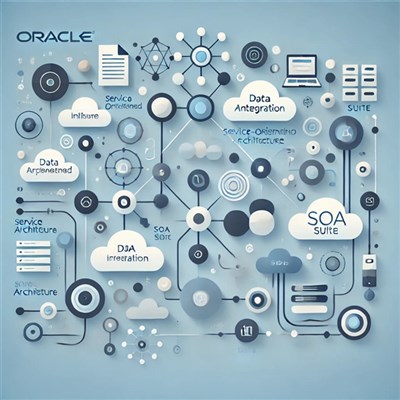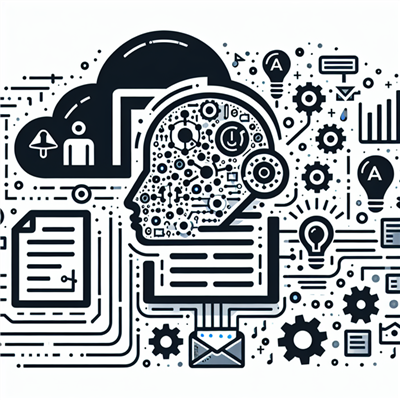
In today’s data-driven world, analytical skills have become some of the most sought-after abilities for professionals across industries. Whether you’re in business, finance, technology, or even creative fields, having the ability to analyze, interpret, and make data-backed decisions can set you apart from the competition. For anyone looking to enhance these skills, enrolling in an analytical skills course can be a powerful step forward.
Analytical skills courses are designed to teach a range of techniques, tools, and methodologies that will improve your ability to solve complex problems, make sound decisions, and gain meaningful insights from data. This blog will walk you through the top analytical skills you'll develop in such a course, providing a clear understanding of how each skill can elevate your professional abilities and career.
Skills You’ll Develop in an Analytical Skills Course
1. Data Interpretation and Analysis
One of the core components of an analytical skills course is the ability to interpret and analyze data effectively. This skill involves not only reading data but also understanding what it represents and identifying key patterns or insights.
- Understanding Data Types: Courses often start by explaining different data types, such as qualitative vs. quantitative data, categorical vs. numerical data, and so on. This knowledge helps in choosing the right methods to analyze each data set.
- Statistical Techniques: You’ll learn statistical techniques such as mean, median, mode, variance, and standard deviation, which are essential for summarizing data.
- Visual Data Interpretation: Skills in interpreting visual data (charts, graphs, tables) are also covered. This is crucial for translating complex data into actionable insights.
Importance: Data interpretation allows you to understand trends, evaluate outcomes, and make data-backed decisions that add value to your organization.
2. Critical Thinking
Critical thinking is the ability to evaluate arguments, identify biases, and make reasoned conclusions. An analytical skills course will push you to question assumptions, consider various viewpoints, and think independently.
- Evaluating Evidence: You’ll learn how to assess the reliability of data sources and evidence, which is essential in making informed decisions.
- Logical Reasoning: Logical reasoning skills help in constructing and evaluating arguments systematically, identifying strengths, and recognizing fallacies.
- Decision Frameworks: Courses may introduce frameworks such as SWOT analysis (Strengths, Weaknesses, Opportunities, Threats) and root-cause analysis to strengthen decision-making processes.
Importance: Critical thinking is crucial for navigating complex situations and making well-founded decisions, especially in uncertain or rapidly changing environments.
3. Problem-Solving
Analytical skills courses emphasize problem-solving, which is vital for tackling challenges and identifying innovative solutions.
- Defining the Problem: Understanding the problem scope is essential. Courses often teach methods for breaking down large problems into smaller, more manageable parts.
- Hypothesis Testing: You'll learn to formulate hypotheses and test them using data, a skill borrowed from scientific methodology but applied to business or real-world scenarios.
- Evaluating Solutions: Finally, courses teach you to assess the potential impact of different solutions to identify the best possible outcome.
Importance: Strong problem-solving skills can make you an invaluable asset to any team, as they allow you to address issues proactively and find solutions that optimize processes or reduce costs.
4. Decision-Making
Decision-making in an analytical skills course is about using logic, data, and structured frameworks to reach sound conclusions.
- Data-Driven Decision Making: Courses teach you how to rely on data rather than intuition, improving the accuracy and effectiveness of your decisions.
- Cost-Benefit Analysis: This technique allows you to weigh the advantages and disadvantages of different options, especially in financial contexts.
- Risk Assessment: Understanding how to evaluate risks and potential outcomes is critical for strategic decision-making.
Importance: Decision-making is at the heart of almost every role, and the ability to make decisions confidently and rationally can fast-track career growth and leadership opportunities.
5. Attention to Detail
While big-picture thinking is essential, attention to detail ensures accuracy and precision in your work. Analytical skills courses will often emphasize the importance of not overlooking small yet significant data points or inconsistencies.
- Checking for Errors: Developing a habit of double-checking work helps to avoid costly mistakes, especially in data analysis and financial assessments.
- Pattern Recognition: Being detail-oriented helps you to notice patterns that may not be immediately obvious, which is critical in areas like market research and data science.
- Validation Techniques: Courses often teach techniques to validate findings and ensure that conclusions are reliable.
Importance: A detail-oriented approach builds a reputation for accuracy and dependability, making you a trusted member of any team.
6. Research Skills
Research is essential for gathering, evaluating, and synthesizing information. Analytical skills courses often cover:
- Data Collection: Techniques for gathering data from both primary sources (surveys, interviews) and secondary sources (journals, reports).
- Evaluating Credibility: Understanding how to assess the credibility of sources, which is especially important in business and academic research.
- Synthesis and Reporting: You’ll also learn to compile data into clear and concise reports, summarizing findings in a way that stakeholders can easily understand.
Importance: Strong research skills enable you to find relevant information quickly, provide actionable insights, and support your decisions with data.
7. Effective Communication of Findings
It’s not enough to understand and analyze data; you must also communicate your findings effectively. This skill involves:
- Data Visualization: Using charts, graphs, and infographics to convey data in a visually engaging way.
- Report Writing: Writing skills are critical for documenting your analysis and presenting it to stakeholders in a clear, persuasive manner.
- Storytelling with Data: Many analytical skills courses emphasize storytelling techniques, helping you to convey complex data narratives that are easy to grasp.
Importance: Communication skills are crucial for making your findings accessible and actionable. A well-presented analysis can influence decisions, secure buy-in from stakeholders, and drive strategic initiatives.
8. Pattern Recognition and Trend Analysis
Being able to recognize patterns and trends is essential in fields like marketing, finance, and operations. Analytical skills courses often cover techniques for:
- Identifying Patterns in Data: Recognizing recurring trends in data helps businesses anticipate demand, customer behavior, and market changes.
- Using Predictive Analytics: Courses may introduce predictive analytics to help forecast future trends based on historical data.
- Real-Time Data Monitoring: Real-time data monitoring tools are becoming more common, and courses teach you how to leverage these tools to act on trends as they emerge.
Importance: Pattern recognition and trend analysis are vital for making proactive decisions, such as anticipating customer needs or optimizing inventory management.
9. Quantitative and Statistical Skills
A significant part of analytical training involves quantitative and statistical skills, which are vital for interpreting data accurately.
- Descriptive and Inferential Statistics: Descriptive statistics help summarize data, while inferential statistics enable you to draw conclusions from data samples.
- Probability Theory: Probability helps in assessing the likelihood of certain outcomes, which is essential in risk assessment and financial forecasting.
- Regression Analysis: Regression models are useful for understanding relationships between variables, helping in predictive modeling.
Importance: Quantitative and statistical skills provide the foundation for many analytical tasks, enabling you to make objective and reliable decisions based on data.
Conclusion
Enrolling in an analytical skills course can be transformative, equipping you with a versatile set of skills that are applicable in almost any industry. From data interpretation to critical thinking, problem-solving, and effective communication, these skills not only improve your professional capabilities but also prepare you to excel in today’s competitive job market.
The analytical mindset developed through these courses fosters better decision-making, stronger research abilities, and sharper attention to detail—all of which are invaluable assets. If you’re looking to advance your career, enhance your employability, or simply improve your ability to think critically and solve complex problems, investing in an analytical skills course is a step well worth considering.
Koenig Solutions is a leading IT training company that provides high-quality training for analytical skills. With experienced instructors, flexible schedules, and a comprehensive curriculum, Koenig ensures you gain the skills necessary to excel in your career.
If you are looking to enhance your analytical abilities, consider enrolling in the analytical skills classes offered by Koenig Solutions.







COMMENT